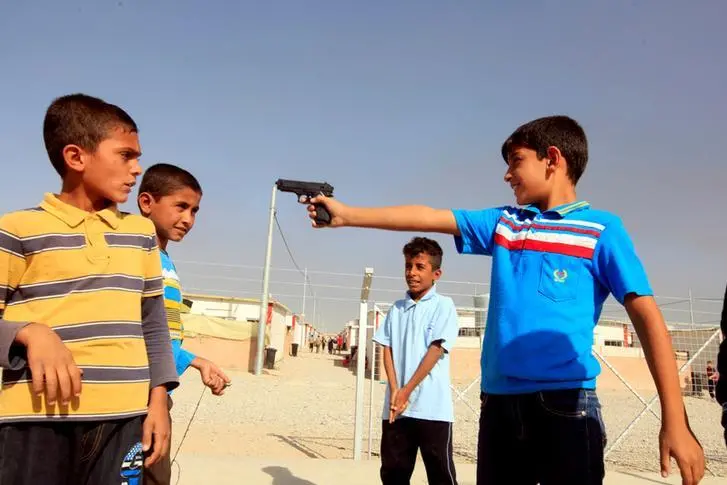PHOTO
According to the latest figures from UNHCR, the UN refugee agency, 82.4 million people worldwide were forced to flee their homes in 2020, with 48 million displaced within their own countries and rest seeking shelter elsewhere. More than two-thirds of these refugees came from five countries: Syria, South Sudan, Myanmar, Venezuela and Afghanistan.
Even if they have fled a country with endemic social and political violence, the shock of abandoning familiar environments, loss of friends and family, and possibly having to take on caring responsibilities for younger siblings are all traumatic.
Inevitably, the first response to any refugee crisis has to be to provide shelter, food and some degree of civil administration. However, mental health issues are often put to one side, a problem that is endemic across many healthcare systems.
The difficulty is that individuals, untreated, respond to trauma in ways that are life-changing for the individual and a threat to wider society. On one level there is a risk of self-medication, using drugs and alcohol, and other coping strategies, such as disengaging from family and community, and losing empathy for others.
Where provision exists, it is often concentrated on low-level psychosocial interventions designed to help young people process their traumatic memories and adapt. This can be effective in circumstances where the traumatic events are no longer relevant, but fail in situations where the original trauma is still a feature and other stressful events take place. Equally, post-traumatic stress disorder and related issues require a greater degree of commitment.
At the other end of the scale, it is important to focus not just on an identifiable mental health problem but also to provide a wider environment where children can expect to be safe and cared for, and have access to education and the chance to play. Lack of this infrastructure undermines mental health, even if it does not lead to identifiable illnesses.
So while traditionally mental health issues have been seen as important but secondary, there is a strong case for an approach that addresses the current environment for refugees, helps with low-level stress and anxiety, and offers specialists to deal with the serious consequences of trauma.
At the moment, mental health provision in refugee camps is poor to nonexistent. Some refugees need relatively low levels of intervention to assist in adaptation, allow them to deal with traumas and remove fears of specific events, such as aircraft flying overhead. Others have multiple mental health problems that would be a challenge in a well-established health system, even if those affected were living in a safe and secure environment.
Simply in terms of the refugee crisis triggered by the Syrian civil war, UNICEF is supporting 697,000 children and adults via child protection and psychosocial programs, and has identified at least another 812,000 who need help. Camps such as Zaatari have one trained psychiatrist. There are over 400,000 Rohingya under-18s in UNHCR camps in Bangladesh and there will be many more unregistered.
This is a field where the gap between demand and provision is huge. The issue is complicated, as almost everyone who flees to a refugee camp has experienced some form of traumatic event, sometimes over a long period of time. Equally, most refugees hope to either return to their home country or move on to a safer, more permanent, home.
In addition, in every case, the burden falls on relatively poor neighboring countries that already face problems meeting the demands of their domestic populations. Thus Jordan, Turkey and Lebanon have absorbed the bulk of those fleeing Syria, Bangladesh is now home to well over 1 million Rohingya, while those fleeing Afghanistan seek to stay in Pakistan or Iran.
All these states have real problems providing the basics for their own populations and, inevitably, issues of mental health tend to be overlooked.
However, children and young adults with serious and untreated mental health problems will become adults struggling with the consequences. For many the price will be paid by the individuals as they fail to complete their education, hold down jobs or to socialize normally.
However, others, affected by a lack of compassion for others, will almost inevitably be prepared to engage in violence themselves — whether this is framed in political or criminal terms scarcely matters.
- Dr. Azeem Ibrahim is the director of special initiatives at the Newlines Institute for Strategy and Policy in Washington DC and author of ‘The Rohingyas: Inside Myanmar’s Genocide’ (Hurst, 2017). Twitter: @AzeemIbrahim
Copyright: Arab News © 2021 All rights reserved. Provided by SyndiGate Media Inc. (Syndigate.info).





















